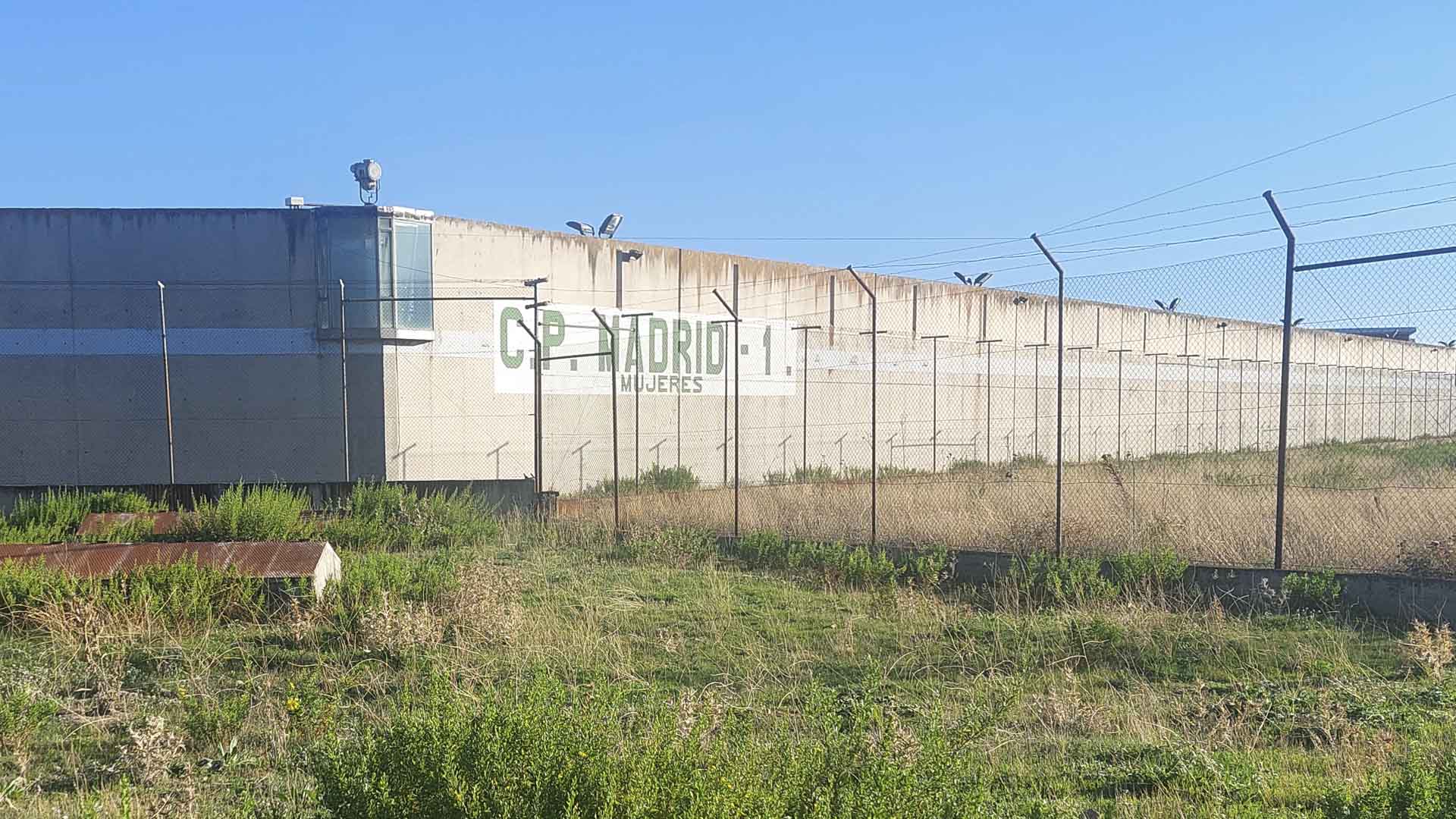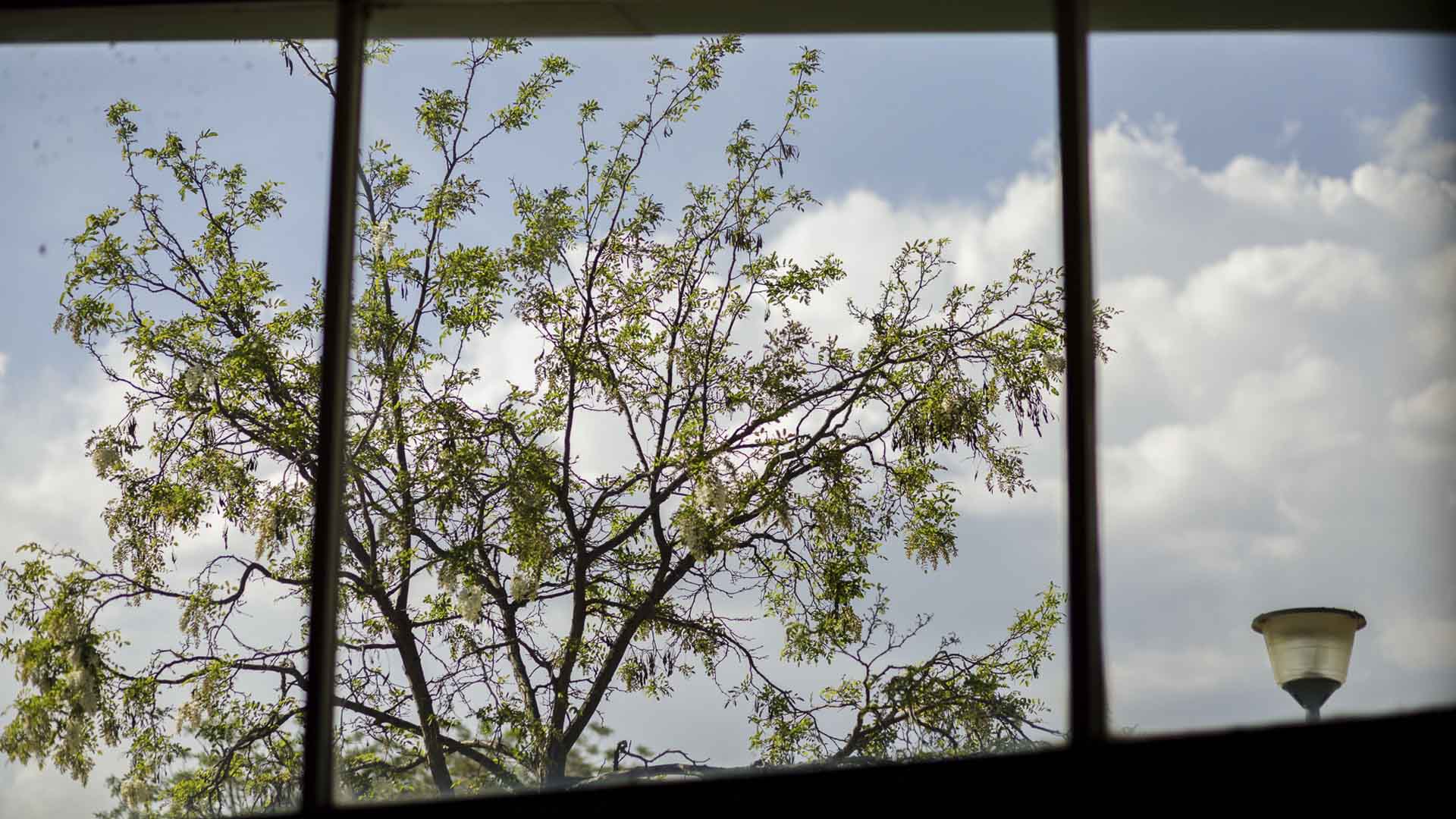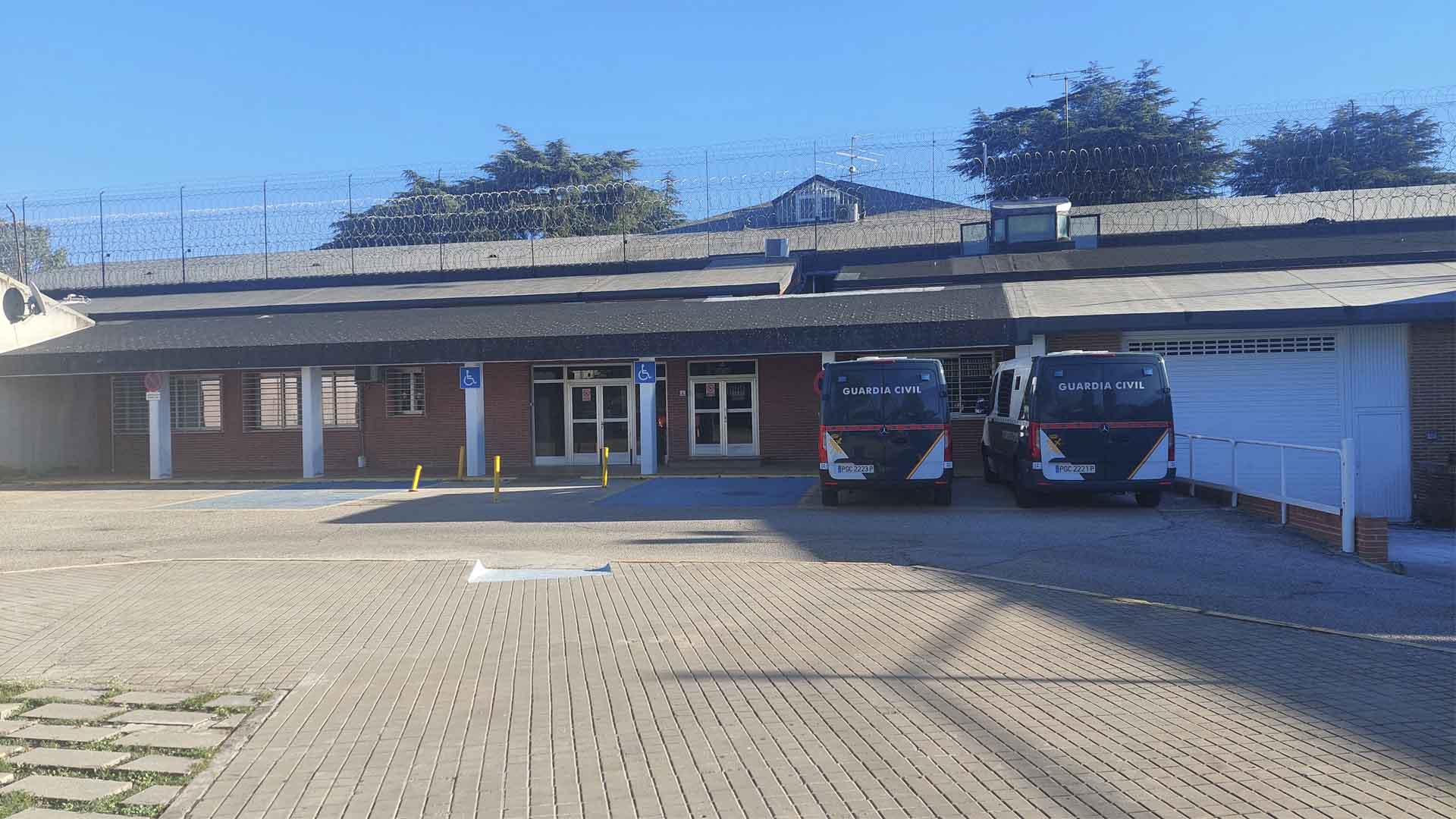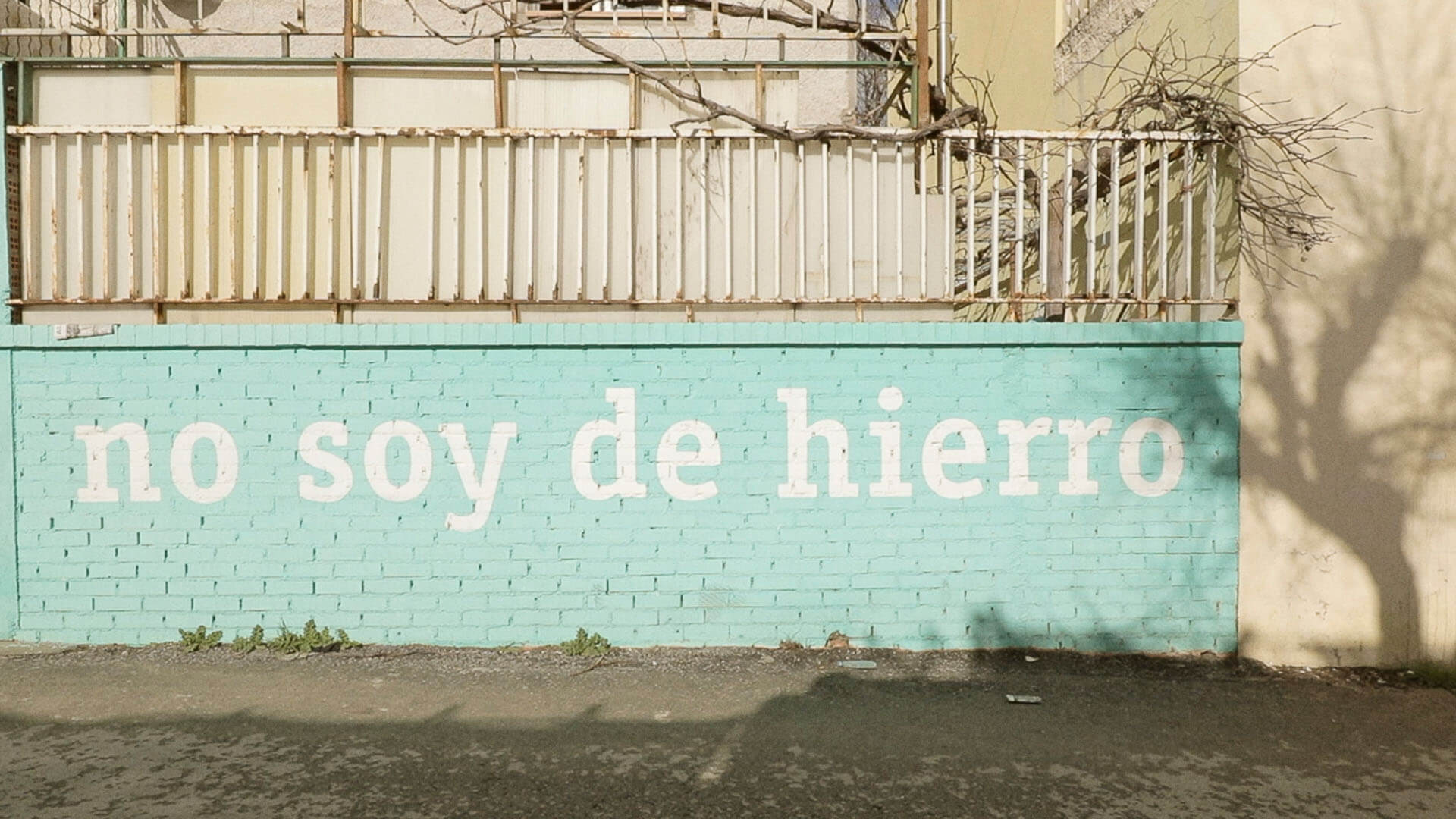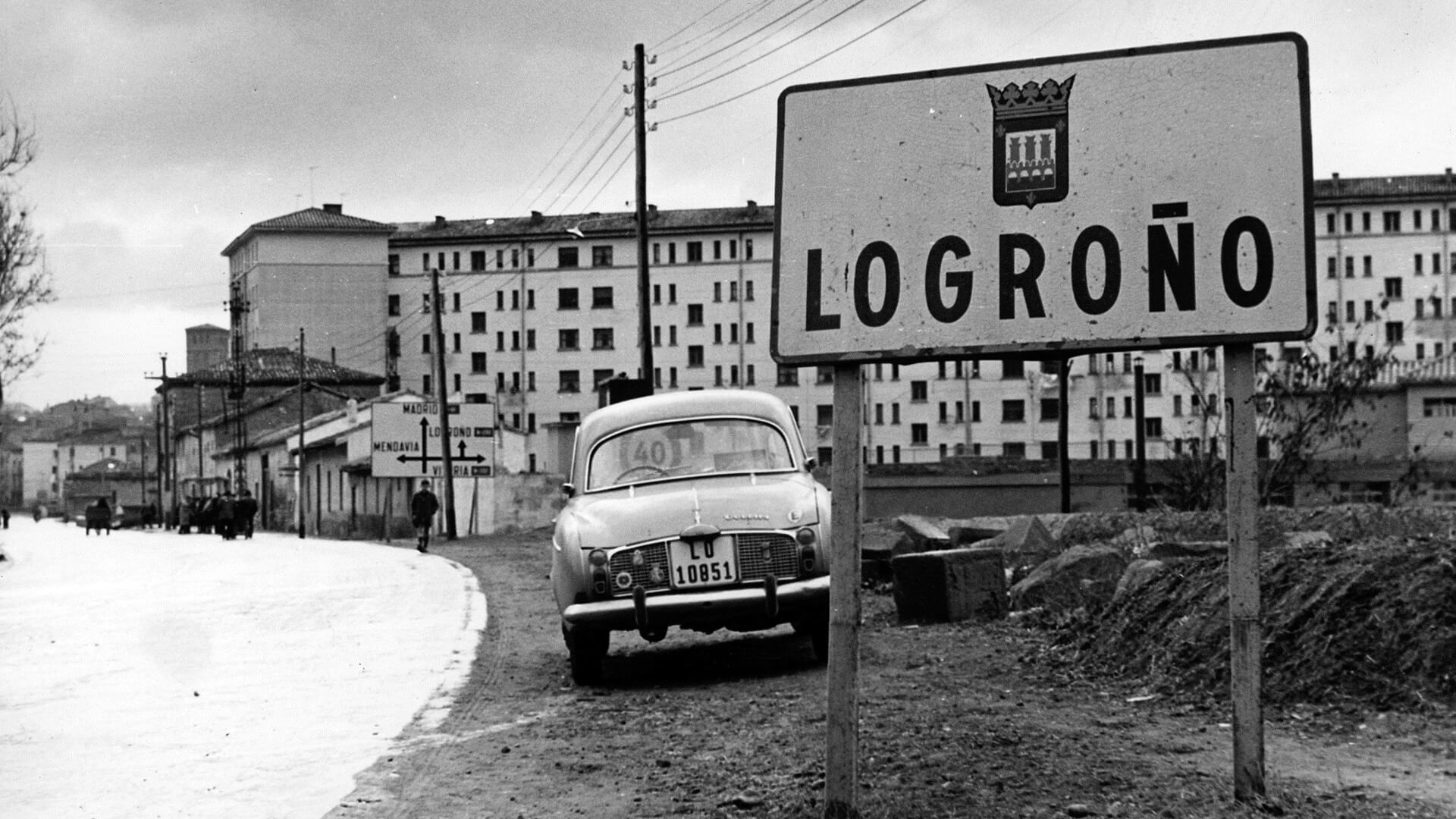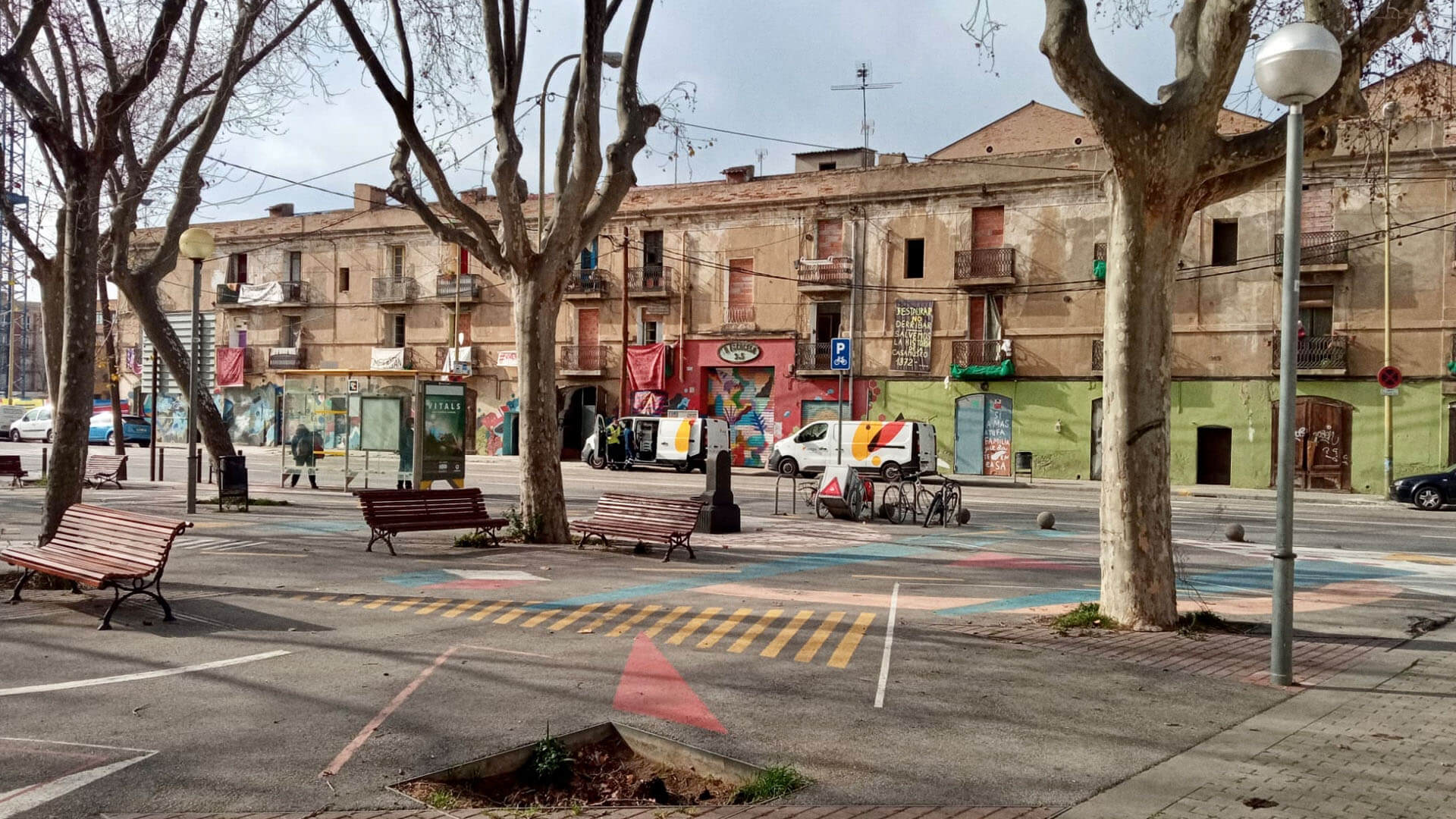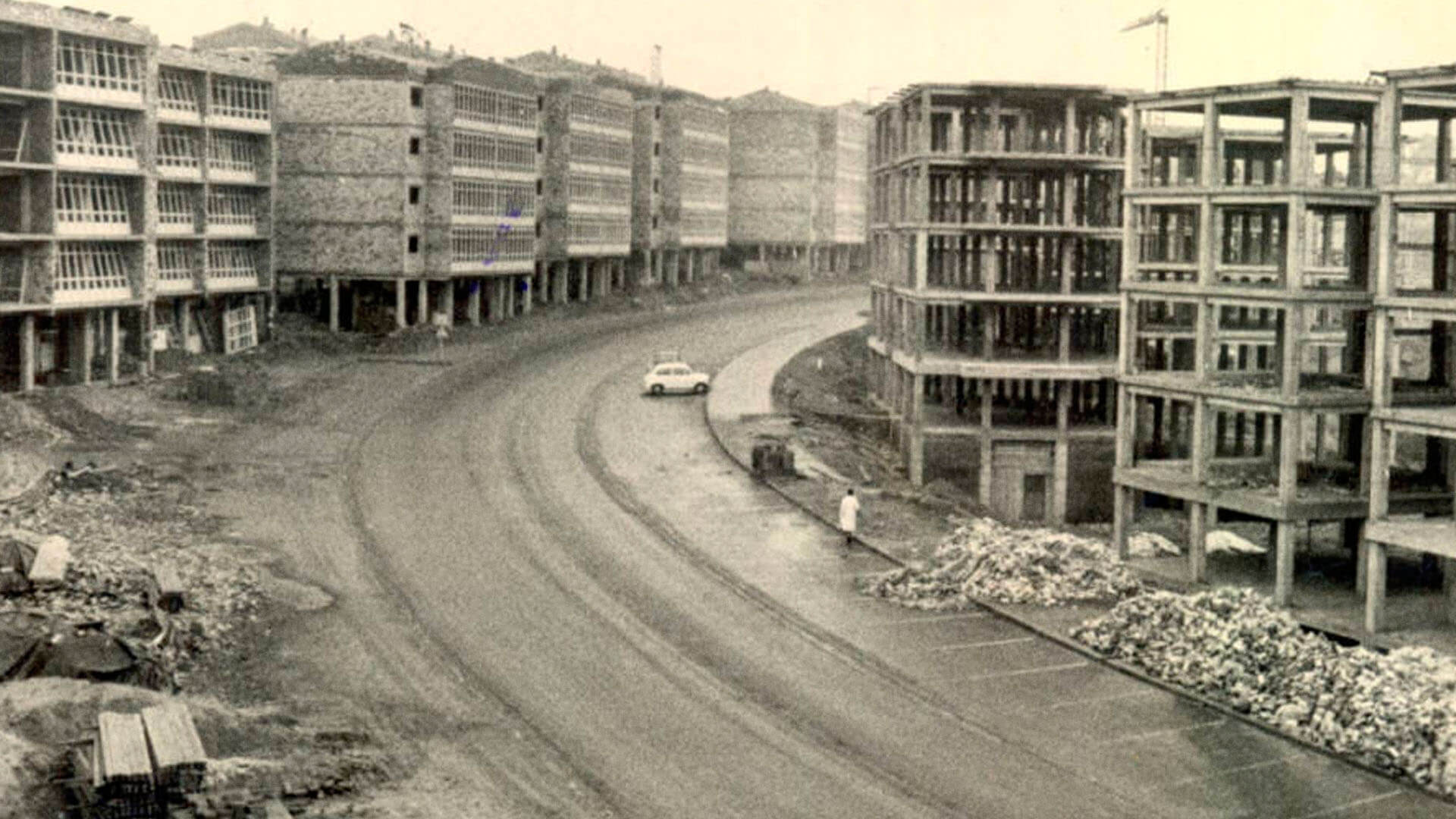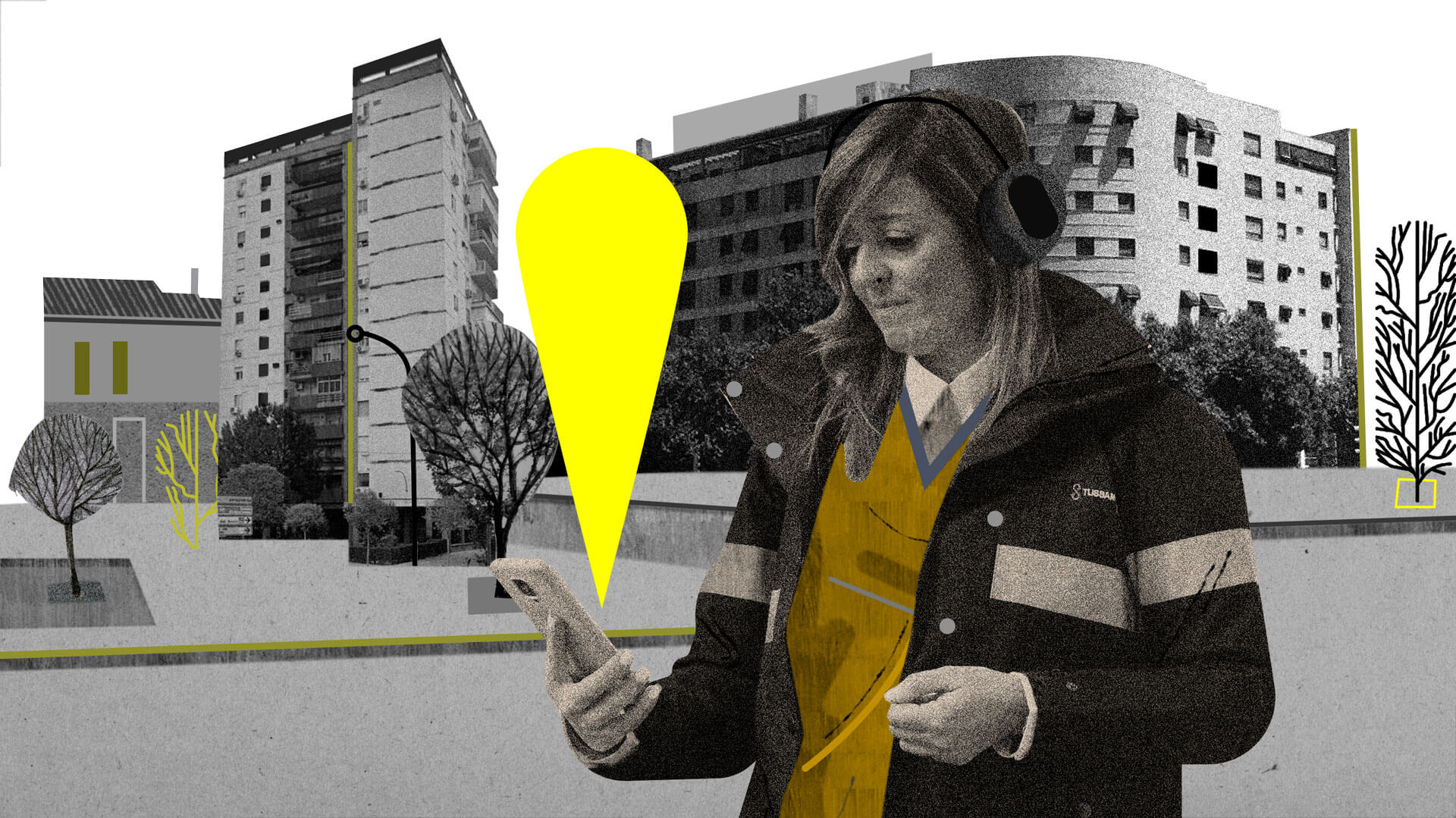This Dramawalker proposes listening to the voices of a group of women who, despite being of very different ages, nationalities and educational backgrounds, live in a specific time in the Alcalá-Meco prison in Madrid, deprived of their freedom and away from their families.
The 16 women who have generously shared their daily lives with us hope to avoid the stigmatisation they fear so much by highlighting the fact that, despite the mistakes they have made, they are still people, mothers, daughters, friends, neighbours, workers… At no time is it intended to represent the entire collective of women in prison, as this is a small group in specific conditions. Like cities, no one prison is the same as another. Like in neighbourhoods, life is different in each of the wings of Alcalá-Meco.
In this Dramawalker, you will not be able to visit the place we are talking about in person, so we propose a virtual tour guided by people who are very accustomed to using imagination to travel on the other side of the wall.
The thirteen pieces that make up Dramawalker Alcalá-Meco Mujeres are:
From outside to inside
01. Arrival
Several women tell us their memories of the first few days in prison. A nightmare, fuzzy at times, but very real.
Inside
02. Guided tour
Alcalá-Meco Mujeres is a special prison. It has no high walls, nor that concrete patio we see in the films. The wings are distributed between open and landscaped spaces and the prisoners do not have a uniform.
03. Dictionary
Isolated from the outside world, living inside is close. Between the walls, women from different cultures share a unique dialect, specific to the place they inhabit.
More inside
04. In the cell
In this prison, the prisoners have considerable freedom of movement, yet they are locked in cells for 16 hours a day. For some it’s an ordeal, for others it’s a break.
05. Delivery
Locked in, the neighbours chat through the window. Resourceful, they seek out ways to exchange more than just words.
Inside, but outside
06. Windy day
At the commissary, in addition to buying food or cleaning products, they can have a coffee with their follow prisoners. At times, they forget where they are and have the sensation of being on the terrace of the neighbourhood bar.
07. Tropical Sunday
Pamela loves writing. She misses her computer, a keyboard, social networks… Here, in this place, she tries to put her thoughts in order by writing with a pen on the first piece of paper she gets her hands on.
With those outside
08. The telephone
For many of these women, the problem is not so much being convicted and having lost their freedom, the hardest thing is being away from their family. They can endure suffering, but it is unbearable to think that they cause suffering to those they love the most.
09. Calls
Eight minutes. They have to queue to be able to speak to the outside world for eight minutes. Life goes on outside, without them, and the telephone is the thread that allows them to continue to be part of it.
10. Communications
There is a room in the prison called “communications”. Families arrive, sometimes after having travelled hundreds of kilometres, to visit the prisoners through the glass. “Communication” is not easy.
Dreaming of the outside
11. Books and bicycles
Everyone in Alcalá-Meco finds their own strategies to cope with distance, separation and waiting.
12. Leave
Life in prison is like a parentheses, a stand-by. And meanwhile, outside, everything goes on. When a woman goes on leave she has to get on the train and rediscover or reinvent her place.
13. Where would you like to be in ten years?
We asked the prisoners where they imagined themselves in ten years. Some dream of exotic and faraway places, dream lives. Others just want to go back to the past.
Director’s note
The proposal by the Centro Dramático Nacional to make a Dramawalker in a prison was a difficult challenge, but one that I immediately saw as a unique opportunity.
I have carried out many audio projects on the history of buildings, of public spaces. Schools, factories, barracks… these become centres of art. I have recorded many interviews with very different people, inhabitants and users of a space, asking about the past and the present, trying to decipher the unique story of each place. I almost never use video, only audio.
What interests me about sound (voices, stories and sound environments) is that it allows us, as an audience, to see things we cannot see, it forces us to “look” in a different, less passive, more creative way.
Working in a prison meant being able to explore that inability to use sight, as it is a confined, closed place. While outside, the public cannot see the inside of the prison and conversely, the prisoners can’t see the outside. Dramawalker Alcalá-Meco Mujeres is at the intersection of impossible, forbidden gazes.
To carry out the project, the CDN set up a multidisciplinary artistic team: Elena Cánovas, prison officer and director of the Yeses theatre group, made up of women prisoners; Sandra Vicente, sound designer; Ana Bustelo, illustrator, and lastly me, visual artist.
Together, we decided to do a one-week workshop to get things started. The management of Alcalá-Meco chose 16 women from among the many people who signed up for the workshop.
The idea of the workshop was to get to know each other and find common ground. We had to understand where and with whom we were going to work, and they had to understand what type of project we were going to do, what it meant to work with sound, to tell stories without images.
It was an incredible week, women prisoners generously shared their daily lives, aware of the responsibility and the extraordinary opportunity to share an image far removed from stereotypes and prejudices.
Later, we made more accurate recordings, with themes and materials that had arisen during the workshop, and finally, we worked on editing, a delicate and exciting task to build a polyphonic narrative, trying to respect each word and every intention.
The result is choir of women with different accents, a unique testimony, between the ordinary and the transcendental, laughter and tears, loneliness and community… always in two directions, from the outside in and from the inside out.
Edurne Rubio


